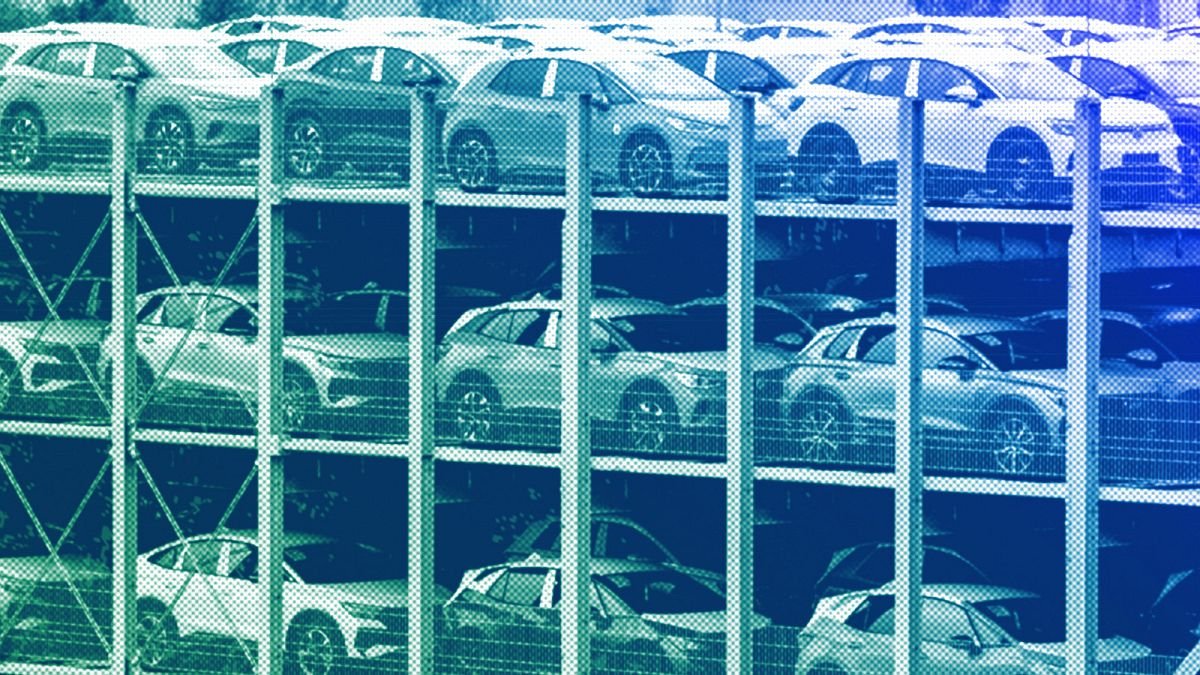The opinions expressed in this article are those of the author and do not represent in any way the editorial position of Euronews.
The failure to adapt to emerging trends in electric vehicle making could threaten not only the region’s prosperity but also its democracies and social cohesion, Soňa Muzikárová writes.
A sense of foreboding grips Central Europe’s car industry, as it comes to terms with the transition toward electric vehicle (EV)-making, while simultaneously coming up against technologically advanced and highly competitive Chinese EVs.
The stakes could not be higher. The failure to adapt to emerging trends could threaten not only the region’s prosperity but also its democracies and social cohesion.
The former communist bloc’s car-making competency comes from a marriage of convenience between its indigenous engineering know-how, and the region’s gradual integration with Western European markets, broadly regarded as the German-Central Eastern European industrial cluster.
Take Slovakia. Today the country is the world’s leader in cars made per capita, boasting four leading original equipment manufacturers (OEMs) — including Volkswagen AG, KIA, Stellantis and Jaguar Land Rover, with Volvo incoming.
Car-making accounts for 46.5% of the total sales in the industry, and 41.4% of exports, according to the country’s Association for Automotive Industry.
OEMs employ more than 170,000 people directly, a number that reaches 255,000 when counting a dense network of almost 400 local suppliers.
Car-making has, moreover, enabled the region to close the prosperity gap with its western neighbours, with the European Commission estimating its purchasing power standard-adjusted GDP per head multiplying manifold since the mid-nineties.
Now the region is staring down the prospect of another profound economic transition, as the quest for car electrification intensifies, the EU gets serious about promoting home-grown production, and Chinese EV brands usurp growing shares of sales in Europe.
The shift to electric is no joyride
OEMs present in Central Europe have forged their paths toward EVs to various degrees. Volkswagen and Jaguar Land Rover will add electric versions of their flagships, including Porsche Cayenne and Defender, respectively, in the next couple of years.
Incoming Volvo will expand its new EV production near the Slovak city of Košice in 2026, while Stellantis projects to ramp up its production by some 400,000 cars per year, of which half will be EVs.
Subcontractors, too, feel the pressure of pivoting towards new electric drivetrain components, increasing demands on R&D capabilities and capital investments, in a geoeconomic climate marked by armed conflict, rising interest rates, and unstable energy prices.
According to a late survey-based study undertaken by the Center for International Private Enterprise and Adapt Institute, however, only a handful of household names, such as Matador, Continental, or Schaeffler, may be able to live up to such demands.
What’s more, some Central European countries have been resting on their laurels when it comes to securing strategic battery investments necessary to underpin the shift.
While Slovakia recently welcomed its first-ever foreign battery investment by Chinese Gotion High Tech, neighbouring Poland has already overtaken the US in its lithium-ion battery production capacity, becoming the world’s second-largest, behind only China.
Meanwhile, Hungary has lured a massive flock of investments from China — from CATL, Eve Energy, Huayou Cobalt, BYD, and Ningbo Zhenyu Technology — amounting to some €10 billion ($10.9bn) just in the last year.
Talent pools on the decline?
At the same time, Central European nations’ approaches to China seem to contradict, as they prepare their supply chains for the next automotive era. While Budapest and now Bratislava seem to embrace Chinese investment, Prague and Warsaw have tended pervasively to host investments from other countries.
A heavy Chinese presence may further intensify Central Europe’s interdependencies with Beijing at a time when Brussels is looking into potentially unlawful subsidies on Chinese EVs, and the origin of investments increasingly matters.
Governments tend to underestimate the true economic exposure of final demand to China since indirect links via supply chains are often ignored, according to a study.
But there’s another catch. For the success of their strategies, OEMs, subcontractors, and investors depend on next-generation worker skills to drive the transition.
Talent pools have been growing shallower in places like Slovakia, as the 5.5 million nation watches its education outcomes deteriorate, losing its brightest to Brno, Prague and other nearby and remote places while contending with unfavourable demographics, and immigration policy divorced from its actual economic needs.
While its neighbours are battling with similar demographic trends, Hungary, for example, recently fast-tracked a new immigration bill in effect since 1 January introducing separate classes of skilled worker and guest worker permits from third countries.
Faced with such a predicament, OEMs operating in Slovakia have been filling in the void through specialized vocational academies.
Volkswagen’s Dual Academy, for example, infuses its modular, easily updatable engineering and electrotechnics curricula with relevant coverage of auto-informatics, connectivity, and cyber-security, according to the CIPE study.
More vocational schools needed
But in the face of government’s indifference, scaling up such programs has proved challenging. Parents also drag their feet when it comes to technical education and tend to encourage their children to pursue generalist gymnasiums instead.
The good news is that the 2022 PISA results, labelled as “tragic” by Slovakia’s Education Minister Tomáš Drucker, seem to have renewed the country’s commitment to a curricular reform — an endeavour that has failed multiple times before.
Until the reform takes root, however, the country’s best bet may be multiplying vocational schools with an emphasis on practical skills while opening up to the arrival of a skilled workforce from abroad.
Soňa Muzikárová is a political economist focused on Central and Eastern Europe and Consultant at the Center for International Private Enterprise (CIPE).
At Euronews, we believe all views matter. Contact us at view@euronews.com to send pitches or submissions and be part of the conversation.

